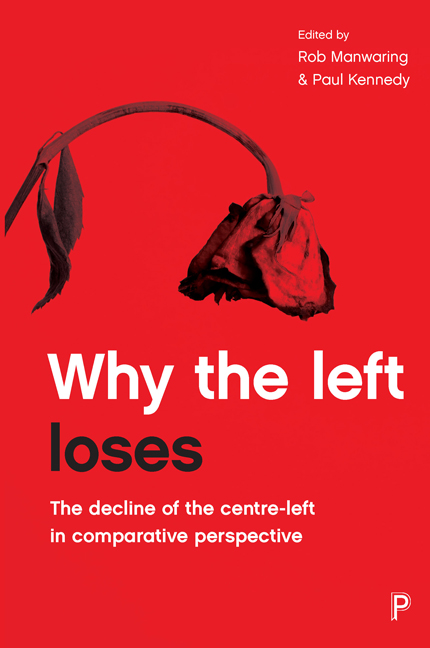Book contents
five - Australian social democracy: capitalist constraints and the challenges of equality
Published online by Cambridge University Press: 08 April 2022
Summary
It will be argued in this chapter that the experience of the Australian Rudd and Gillard governments (2007-13) reflects deeper problems faced by social democratic governments, and that the Australian experience therefore has relevance for social democracy internationally. In particular, an analysis of why the left (so often) loses in Australia needs to look not just at specific national features but also at longerterm problems and dilemmas that social democracy has faced in regard to managing capitalist economies and attempting to mitigate diverse forms of inequality. This chapter therefore focuses on the attempts of the Australian Rudd and Gillard governments to tackle some of these issues. In doing so, it does not aim to give detailed analyses of their legislative programmes, nor the multiple factors that contributed to their electoral difficulties. Rather, given the focus of this collection, it intends to concentrate on identifying some key issues that have a broader relevance.
Institutional factors and democratic constraints
At first sight, Australian political institutions should provide favourable contexts for electing social democratic governments. Indeed, Australia was a pioneer of electoral reforms (Sawer, 2001) that facilitated working-class voting. Australia elected its first state Labor government in 1899 and a (brief) federal Labor government in 1904, thereby arguably forming both the first Labor government anywhere in the world and also the first national one (Murphy, 1971; McMullin, 2006). Nonetheless, the issue of ‘why the left loses’ is particularly relevant for Australia. Despite such a promising start, as of the 2016 election, Labor had won only 14 of the 45 federal elections held since Australia became a nation in 1901.
Consequently, it is worth noting that Australia's political institutions have also posed some difficulties for Labor nationally. A preferential voting system helped keep Labor out of power in the 1950s and 1960s when the preferences of a conservative, Catholic-influenced, anti- Communist party formed after a split in Labor assisted the Liberal Party (Australia's equivalent of the British Conservatives) in winning office. However, in more recent years the preferential voting system has allowed preferences from left-wing voters, such as Greens supporters, to flow to Labor for key House of Representatives seats, where the government is formed, thereby partly compensating for a major drop in Labor's primary vote, and making Labor's electoral competition with other parties marginally less of an issue than in first-past-thepost systems such as Britain's (see, for example, Bale, 2015, pp 268- 9).
- Type
- Chapter
- Information
- Why the Left LosesThe Decline of the Centre-Left in Comparative Perspective, pp. 69 - 84Publisher: Bristol University PressPrint publication year: 2017

